Where the worldwide
spectrum community meets
Where the worldwide
spectrum community meets
The 12th Latin America Spectrum Management Conference, kindly hosted by ENACOM and Secretaría de Innovación, Ciencia y Tecnología, took place on 12 -13 November, 2025, at the Centro Cultural de la Ciencia – C3 in Buenos Aires, Argentina.
Across 2 days attendees had the opportunity to be involved in discussions on the key spectrum topics for the Latin America region and beyond, through interactive sessions, networking opportunities, an exhibition area, and much more…
This event is part of The Global Spectrum Series, the world’s largest collection of regional spectrum policy conferences. Click on the images on the right to find out more about the series and to view the photos from 2024.










 Forum Global
Forum Global Forum Global specialises in policy-focused conferences and events, providing a platform for discussion and debate on topical issues across a variety of different sectors. These events are organised with clients and partners and aim to progress ideas and actions on important issues, all within a balanced and neutral setting. Forum Global is the international arm of Forum Europe, which was founded by Giles Merritt, columnist for the International Herald Tribune, and is widely recognised as the leading EU-dedicated event provider. Headed by a team of event specialists with over 19 years of experience, Forum Global works successfully with businesses, institutions, and governments alike. Its strategic services can maintain and develop your key policy networks and also deliver forums where key issues can be aired and debated.

 ENACOM
ENACOM Enacom is an autonomous and decentralized entity that operates within the Office of the Chief of Cabinet of Ministers of the Nation. Its objective is to guide the process of technological convergence and create stable market conditions to guarantee all Argentinians access to internet, landline and mobile telephone, radio, postal, and television services.
Enacom was created in December 2015 through Decree 267, which establishes its role as a communications regulator to ensure that all users in the country have quality services.

 Secretaría de Innovación, Ciencia y Tecnología
Secretaría de Innovación, Ciencia y Tecnología Secretaria promotes an agile, transparent, and innovative government that supports Argentina’s scientific and technological development.

 Access Partnership
Access Partnership Access Partnership is the world’s preeminent tech advisory firm. We’ve been helping leading companies navigate complex regulatory challenges and expand their products and services to new markets since 1999. During this time, we’ve also worked closely with governments to offer advice on creating policies and regulations as the landscape continues to change with new and emerging technologies.
Through two decades of experience, Access Partnership has developed effective and proprietary processes that ensure our clients’ goals are achieved every time. With our expertise and experience, we’re able to anticipate future regulations and manage policy trends on a global scale.
Their mission is to ensure that everyone has access to transformative technologies while promoting fair competition and consumer choice.

 Amazon
Amazon Amazon is guided by four principles: customer obsession rather than competitor focus, passion for invention, commitment to operational excellence, and long-term thinking. Amazon strives to be Earth’s most customer-centric company, Earth’s best employer, and Earth’s safest place to work. Customer reviews, 1-Click shopping, personalized recommendations, Prime, Fulfillment by Amazon, AWS, Kindle Direct Publishing, Kindle, Career Choice, Fire tablets, Fire TV, Amazon Echo, Alexa, Just Walk Out technology, Amazon Studios, and The Climate Pledge are some of the things pioneered by Amazon.

 AscendArc
AscendArc AscendArc was founded to transform the economics of satellite communications.
After years working on high-throughput satellite networks at Panasonic and enterprise applications for Starlink at SpaceX, founder Chris McLain saw a gap in the market: traditional GEO satellites were too expensive, too slow to build, and didn’t deliver enough value for emerging connectivity demands.

 Car Connectivity Consortium
Car Connectivity Consortium The Car Connectivity Consortium brings automotive and consumer technology industries together to future-proof vehicle access using smart devices. Every significant manufacturer in every corner of the world — from Shanghai, China to Munich, Germany to New York City, USA — is a vital part of our member-based organization. Secure shareability is not just one of the unique aspects of the CCC Digital Key — it’s the foundation of our organization. With membership comes a seat at our table, no matter the size of your company or nonprofit, and an equal say in the gold standard of end-to-end interoperability. Cross-platform compatibility is our brand promise, so everyone globally can experience the same access to private, secure mobility.
For more information please visit: carconnectivity.org

 Cisco
Cisco Cisco offers an industry-leading portfolio of technology innovations. With networking, security, collaboration, cloud management, and more, they help to securely connect industries and communities.

 Coleago Consulting
Coleago Consulting Coleago profile for conference website Founded in 2001, Coleago is a specialist telecoms management consulting firm. Our expertise has been developed exclusively within the telecoms sector and delivers a rare combination of telecoms-related commercial and technical skills and experience. Since 2001 we have worked on over 110 spectrum related projects in developed and emerging markets. Since 2017 our spectrum projects included the transition to 5G, including valuating spectrum most relevant for 5G such as 600MHz, 700MHz, 3.5GHz, and mm wave. We advise regulators on spectrum policy, spectrum roadmap, spectrum pricing, spectrum auctions and capacity building on the topic best practice in spectrum auctions. For mobile operators Coleago delivers regulatory advocacy and responses to consultation, spectrum valuation, bid strategy development and live auction support. Coleago also authored complete bid books for spectrum licence awards by means of a beauty contest.

 Ericsson
Ericsson 
 Globalstar
Globalstar Globalstar is a next-generation telecommunications provider delivering reliable, next-generation connectivity solutions through both satellite and terrestrial infrastructure. With a proprietary satellite network and exclusive access to licensed mid-band spectrum (Band 53 and Band n53), Globalstar offers end-to-end voice, data, and asset tracking services that power critical operations across enterprise, government, and consumer markets. From emergency communications and IoT deployments to private wireless and spectrum-based solutions, Globalstar delivers the resilient coverage and flexibility a connected world demands.
Headquartered in Covington, Louisiana, with regional offices around the globe, Globalstar is more than its technology; it’s a team of dedicated engineers, sales leaders, developers, and operations experts driven by a shared mission:
To make connectivity seamless, secure, and accessible anywhere on Earth.

 GSA
GSA GSA (the Global mobile Suppliers Association) is a not-for-profit industry organisation representing companies across the worldwide mobile ecosystem engaged in the supply of infrastructure, semiconductors, test equipment, devices, applications and mobile support services.
GSA actively promotes the 3GPP technology road-map – 3G; 4G; 5G, – and is a single source of information resource for industry reports and market intelligence. GSA Members drive the GSA agenda and define the communications and development strategy for the Association.
The GSA Spectrum Group develops strategies and plans, and contributes studies and technical analysis to international, regional and individual country policy-makers and regulators to facilitate the timely availability of spectrum for use by mobile network operators.

 GSMA
GSMA The GSMA represents the interests of mobile operators worldwide, uniting nearly 800 operators with more than 250 companies in the broader mobile ecosystem, including handset and device makers, software companies, equipment providers and Internet companies, as well as organisations in adjacent industry sectors. The GSMA also produces industry-leading events such as Mobile World Congress, Mobile World Congress Shanghai and the Mobile 360 Series conferences.

 GSOA
GSOA 
 HPE
HPE HPE is the global edge-to-cloud company built to transform your business. How? By helping you connect, protect, analyze, and act on all your data and applications wherever they live, from edge to cloud, so you can turn insights into outcomes at the speed required to thrive in today’s complex world.
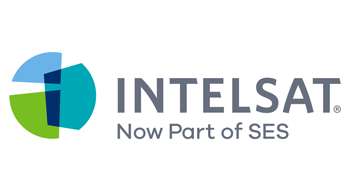
 Intelsat (now part of SES)
Intelsat (now part of SES) 
 Newsky.plus
Newsky.plus At NewSky.plus, we thrive in the realms of satellites, SatComs, and commercial space. This is our comfort zone, where we innovate and lead. We take on projects of critical importance for both private companies and public sector entities, ensuring regulatory affairs and policy affairs are managed strategically.
We expertly guide you through compliance and go-to-market strategies, crafting and advocating for effective regulations outside the US. Our deep expertise ensures that commercial goals and senior government relations in the Global South are met with precision.
Your vision and challenges are our input. Achieving your objectives our priority output. We do this by focusing on strategic thinking, risk management and creative implementation. We provide ideas you can trust.
Our philosophy is simple: passion, service, effectiveness, and know-how. We never compromise on quality and tailor unique strategies for each client.

 Nokia
Nokia 
 Omnispace
Omnispace Omnispace is uniting the simplicity of mobile roaming with the scope of satellite to create the world’s first truly global 5G network.
Omnispace are reinventing communications to deliver greater reach, improved reliability, and enhanced quality of service for billions of users and devices worldwide. By integrating terrestrial and satellite networks into one seamless connected experience, they are empowering consumer, enterprise, government and IoT users worldwide.

 Qualcomm
Qualcomm 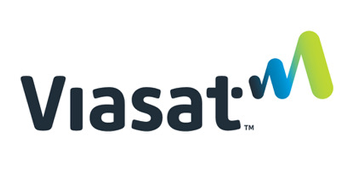
 Viasat
Viasat Viasat is a global communications company that believes everyone and everything in the world can be connected. With offices in 24 countries around the world, our mission shapes how consumers, businesses, governments and militaries around the world communicate and connect.
Viasat is developing the ultimate global communications network to power high-quality, reliable, secure, affordable, fast connections to positively impact people’s lives anywhere they are—on the ground, in the air or at sea, while building a sustainable future in space.
On May 30, 2023, Viasat completed its acquisition of Inmarsat, combining the teams, technologies and resources of the two companies to create a new global communications partner.
Learn more at www.viasat.com, the Viasat News Room or follow on Facebook, Instagram, LinkedIn, Twitter or YouTube.

 Skylo
Skylo Skylo has been developed by a passionate group of engineers and scientists from MIT and Stanford in the US, and an experienced deployment team in Finland and India. The team invented an entirely new way of networking communications using existing geostationary satellites for affordable and continuous coverage, anywhere on Earth. Skylo is backed by some of the largest, most well-known organizations in the world.
There is massive potential for our customers to drive transformative impact. Businesses can turbocharge their offerings, strengthening their operations to lift up their families, communities and local economies.
Governments can better serve citizens and save lives, with elements like enhanced disaster management. New companies will emerge using our solution as entrepreneurs discover new possibilities.
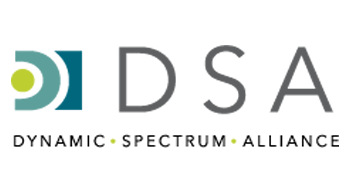
 Dynamic Spectrum Alliance (DSA)
Dynamic Spectrum Alliance (DSA) The Dynamic Spectrum Alliance (DSA) is a global, cross-industry, not for profit organization advocating for laws, regulations, and economic best practices that will lead to more efficient utilization of spectrum and foster innovation and affordable connectivity for all.

 Welchman Keen
Welchman Keen At Welchman Keen, we recognise the critical importance of bridging this digital divide through strategic, sustainable, and secure connectivity solutions. Our expertise lies in navigating the complex interplay of policy, technology, and socio-economic factors to unlock the transformative power of connectivity for all.
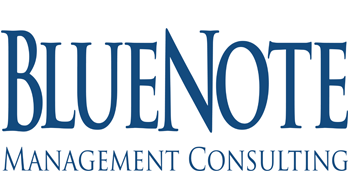
 BlueNote
BlueNote BlueNote provides an end-to-end perspective, starting with diagnosing the business context and understanding a client’s mindset.
They also provide insightful and impartial strategic advice from their team of experienced and highly-professional consultants.
BlueNote partner with their clients in the implementation of new initiatives, making sure the desired changes are achieved and the planned initiatives actually materialize.

 Shure
Shure With a history of innovation that began in 1925, Shure has turned a passion for making great microphones and audio electronics into an obsession.
Shure continues to set the worldwide industry standard for superior, reliable products.

 Specure
Specure Specure, an Austrian firm, specializes in developing software for spectrum auctions.
Their EAS auction platform has been fundamental to numerous successful spectrum auctions across Europe and Africa.
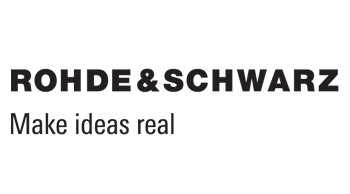
 Rohde & Schwarz
Rohde & Schwarz 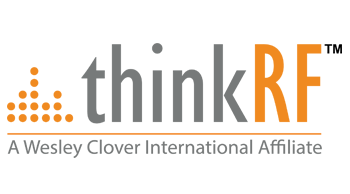
 thinkRF
thinkRF thinkRF is one of the proud affiliates of the Wesley Clover International, a serial super angel, found or fund over 100 successful Information and Communications Technologies (ICT) companies, either independently or in partnership with other investors. The portfolio currently consists of public and private firms focused on next-generation Cloud and SaaS applications, hardware and services for fixed/mobile communications, video collaboration, customer engagement, analytics and more.
We are revolutionizing spectrum monitoring and intelligence. We provide ultimate visibility to wireless network operators and national regulatory agencies and empower them to optimize and utilize RF spectrum. We not only provide real-time, but also historical data and insights to guide wireless network operators in making informed decisions about their spectrum policies.
We are the leader in software-defined spectrum analysis platforms that monitor, detect and analyze complex waveforms in today’s rapidly evolving wireless landscape. Spectrum eXperience Management (SXM) is our subscription-based wireless network monitoring and intelligence solution. Wireless network operators can characterize, optimize and protect vital RF spectrum networks with real-time and historical insights on the state of wireless technologies

 CABASE
CABASE Founded in 1989, CABASE is a Non-profit Association, with a membership consisting of the main connectivity providers and ISPs in Argentina, as well as numerous technology companies which comprise the Internet ecosystem in Argentina.

 Chicas TIC LATAM
Chicas TIC LATAM Chicas TIC are a community of women who develop careers in decision-making positions within ICT (Information and Communication Technologies) companies and organizations. They have the challenge of accompanying themselves in pursuit of the integral growth of women with a professional focus through networking. They seek to encourage more women to reach leadership positions. They were born in Argentina, but they extend to all of Latin America.
The field of technology today is an essential part of all industries, and the lack of participation of women in leadership positions is repeated in many sectors. One of the difficulties in reaching key positions is the poor development of networking and contact networks. At Chicas TIC, they work to generate this network of professional support for women and reverse this situation.
Chicas TIC encourages women to encourage themselves, expand their network, create and occupy spaces, share experiences, and don’t miss happy hour or the work lunch. Make visible the initiatives and achievements of women in the sector to let them know that it is possible, that there are many of them in a similar situation, and that they can ask for help.

 Aetha Consulting
Aetha Consulting Aetha Consulting provides strategic advice to the telecommunications industry and specialises in undertaking rigorous data-driven quantitative assessments to help businesses, regulators, and policy makers make major strategic and regulatory decisions.
We work with our clients to develop creative and sustainable solutions to the challenges facing them in a constantly changing environment. Aetha helps operators and regulators to analyse the opportunities and threats arising out of changes (whether real or proposed) in their radio spectrum holdings. Throughout the recent unprecedented growth of wireless services, Aetha’s staff have been at the forefront of spectrum policy. Our consultants have assisted regulators to award spectrum and develop regulatory frameworks, including supporting the European Commission to tackle issues such as spectrum trading and the digital dividend.
We also support operators to understand their spectrum needs, value spectrum and bid in auctions. Each year we support around 10 bidders in spectrum auctions – a total of over 120 award processes between mid-2011 and 2023 across all regions of the world. Our technical knowledge, combined with our rigorous valuation modelling approach, ensures that our clients are comprehensively prepared for auctions.

 Aetha Consulting
Aetha Consulting 
 NERA
NERA NERA Economic Consulting is a global firm of experts dedicated to applying economic, finance, and quantitative principles to complex business and legal challenges. For half a century, NERA’s economists have been creating strategies, studies, reports, expert testimony, and policy recommendations for government authorities and the world’s leading law firms and corporations. We bring academic rigor, objectivity, and real world industry experience to bear on issues arising from competition, regulation, public policy, strategy, finance, and litigation. NERA’s clients value our ability to apply and communicate state-of-the-art approaches clearly and convincingly, our commitment to deliver unbiased findings, and our reputation for quality and independence. Our clients rely on the integrity and skills of our unparalleled team of economists and other experts backed by the resources and reliability of one of the world’s largest economic consultancies. With its main office in New York City, NERA serves clients from more than 25 offices across North America, Europe, and Asia Pacific.
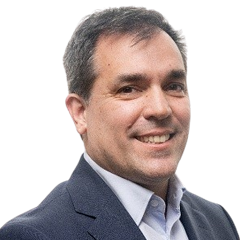
 Juan Martín Ozores, President, ENACOM Argentina
Juan Martín Ozores, President, ENACOM Argentina More information available shortly
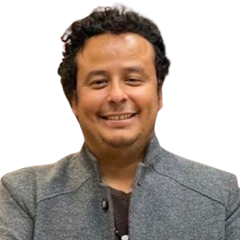
 Ricardo Martinez, Chair, Working Group for WRC-27, CITEL
Ricardo Martinez, Chair, Working Group for WRC-27, CITEL More information available shortly.
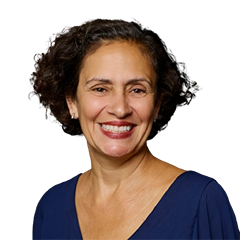
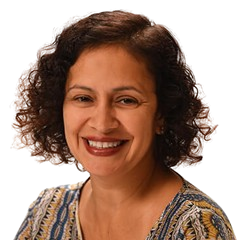 Luciana Camargos, Head of Spectrum, GSMA
Luciana Camargos, Head of Spectrum, GSMA Luciana Camargos is the GSMA’s Head of Spectrum. She directs the GSMA’s range of advocacy issues on public policy relating to spectrum with national governments and multilateral organisations.
Luciana’s career began with Brazilian regulator Anatel, where she worked as part of the board advisory team. She joined the GSMA in 2012, where she has continued to be active in shaping the future of mobile services at international forums such as the ITU, CITEL, and other multilateral organisations.
She has chaired regulatory groups charged with developing communications regulation at the ITU and in regional organisations. She is an active supporter of the role of women in technology and is a former chair of the ITU’s Network of Women.
Luciana earned an MBA in telecommunications from the University of Strathclyde, Scotland, and a degree in electrical engineering from the University of Brasilia.
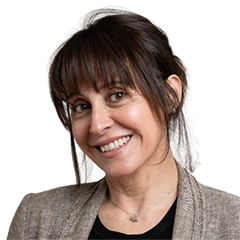
 Paula Cordoba, Senior Lead, Licensing & Regulatory Affairs, Americas, Amazon
Paula Cordoba, Senior Lead, Licensing & Regulatory Affairs, Americas, Amazon More information available shortly.
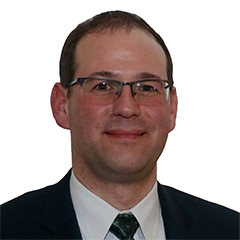
 Alexander Kühn, Chairman of CPM-27 (Conference Preparatory Meeting for WRC-27), ITU
Alexander Kühn, Chairman of CPM-27 (Conference Preparatory Meeting for WRC-27), ITU After a state exam in law at the University of Osnabrück, Mr Kühn has been working since 1998 in the area of legal internship (e.g. at Regional Court) of the Federal Network Agency Germany; changing to National and International Spectrum Regulation on different levels in 2005. Nowadays, he is the Deputy Head of Section for International Affairs and Utilization Concepts. His responsibilities cover strategic frequency utilization concepts and the transposition of those to the international level of CEPT, EU and ITU. Doing this and having been active in the preparation of three WRC’s, on national and on CEPT CPG level, Mr Kühn participated in a number of international Groups, also as Head of the German Delegation. He has also chaired several groups and subgroups in the ITU and CEPT. Since 2005, he has been responsible for the German preparation of the WRC’s and served as CEPT CPG Vice Chairman from 2010 to 2013. Mr Kühn was appointed Chairman of CPG in June 2013.
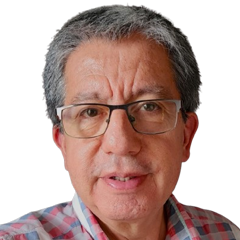
 Manuel Cabrera, Head of Authorisations Department, SUBTEL Chile
Manuel Cabrera, Head of Authorisations Department, SUBTEL Chile More information available shortly
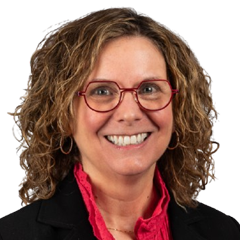
 Cindy Cook, Vice President & Global Head of Spectrum and Technology Regulations, Ericsson
Cindy Cook, Vice President & Global Head of Spectrum and Technology Regulations, Ericsson Cindy Cook is Vice President & Global Head of Spectrum and Technology Regulations at Ericsson. She coordinates and drives Ericsson’s spectrum and technology regulatory efforts globally, across the Ericsson Group and towards regulatory bodies such as the ITU. She leads the development of Ericsson’s global spectrum strategies.
Prior to joining Ericsson, Cindy was the Director, International Spectrum & Standards with the Canadian Government where she led Canadian preparations towards multiple ITU-R Radiocommunication Assemblies & World Radiocommunication Conferences. Cindy has been actively participating in the work of the ITU-R for over 20 years where she has chaired progressively higher-level international meetings including the ITU-R Conference Preparatory Meeting for WRC-23, the first woman to do so. She is an advocate for gender equality, promoting the role of women in the spectrum and technology fields.
Cindy has over 35 years of experience in telecommunications systems engineering, regulation and policy development, having also worked at Telesat Canada, Bell Canada and Nortel. She graduated sum cum laude from the University of Ottawa with a Bachelor of Advanced Science in Electrical Engineering.
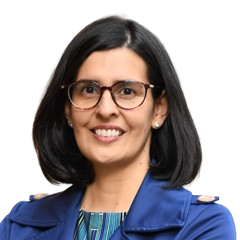
 Martha Suarez, President, Dynamic Spectrum Alliance
Martha Suarez, President, Dynamic Spectrum Alliance More information available shortly
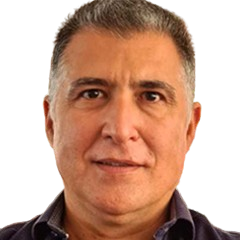
 Sidney Nince, Advisor to the Superintendency of Authorisations and Spectrum, ANATEL Brazil
Sidney Nince, Advisor to the Superintendency of Authorisations and Spectrum, ANATEL Brazil More information to be available shortly.
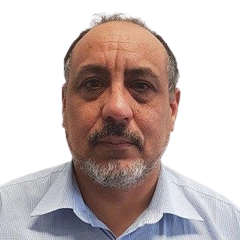
 Hector Bude, Head of Spectrum Management Department, URSEC Uruguay
Hector Bude, Head of Spectrum Management Department, URSEC Uruguay Hector Bude De Leon studied Electronics at Domingo Savio, a Salesian Institute in Montevideo and Engineering at the University of the Republic (UDELAR).
He has developed his work in the field of administration and management of the radio spectrum since 1991, when he joined the National Communications Authority (DNC), which in 2001 became the actual Communications Regulatory Agency (URSEC) of Uruguay.
For nearly three decades, he was the Head of Radio Frequencies, and today he is the Head of Frequency Management Department and also the General Advisor for URSEC Board.
Within the PCC.II of CITEL (Inter American Telecommunication Commission) he has held several positions, including Vice Chairman for the periods 2010–2021, Vice Chairman of the Working Group for the Preparation of the Regional and World Radiocommunication Conference for the period 2008–2011, and Chairman for the period 2012–2015.
Today, he is Vice Chairman of PCC II for the period 2022–2025.

 Josh Baggett, Head of Global Spectrum Policy, HPE
Josh Baggett, Head of Global Spectrum Policy, HPE More information available shortly.

 Carolina Limbatto, Head of Americas, Cullen International
Carolina Limbatto, Head of Americas, Cullen International Carolina Limbatto is an economist specialising in regulatory and competition issues. She has worked for Cullen International since 2014 monitoring, reporting and benchmarking on regulatory issues and policy developments in telecommunications, media and digital economy in the Americas.
Ms Limbatto is lead author of the Telecoms Cross-Country Analysis report and the spectrum service in the Americas. Ms Limbatto also regularly participates in regional relevant forum and engages with main stakeholders providing a neutral and accurate assessment and provides training and briefings on policy and regulatory issues.
Before joining Cullen, Ms Limbatto worked at the Argentinian telecoms regulator for five years, advising on regulatory and economic issues.
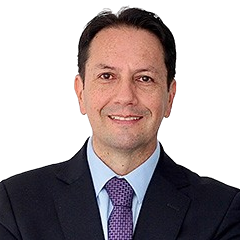
 Nicolás Silva Cortés, Deputy Director of Spectrum Management and Planning, ANE Colombia
Nicolás Silva Cortés, Deputy Director of Spectrum Management and Planning, ANE Colombia Electronic Engineer from Pontificia Universidad Javeriana, with a Master’s in Business Administration and a specialization in Marketing Management from Universidad del Rosario. He has held senior positions at the Communications Regulation Commission of Colombia (CRC), including Commissioner (2020) and Executive Director (2023), and currently serves as Deputy Director of Spectrum Management at the National Spectrum Agency (ANE). He has represented Colombia before ITU, CITEL, and OECD, and lectures in postgraduate programs on Telecommunications Regulation and Emerging Technologies.
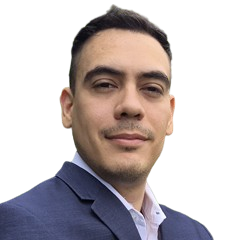
 Roberto Gamboa Madrigal, Legal Advisor Spectrum Unit, SUTEL Costa Rica
Roberto Gamboa Madrigal, Legal Advisor Spectrum Unit, SUTEL Costa Rica More information available shortly.
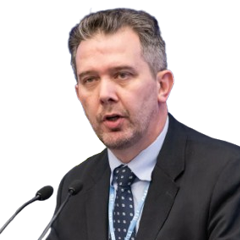
 Maximiliano Martinhao, Senior Director Government Affairs, Qualcomm
Maximiliano Martinhao, Senior Director Government Affairs, Qualcomm More information available shortly.
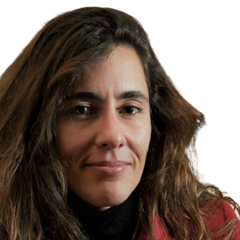
 Mariana Rodríguez Zani, CEO, Grupo Convergencia
Mariana Rodríguez Zani, CEO, Grupo Convergencia More information available shortly.

 Juan Martín Ozores, President, ENACOM Argentina
Juan Martín Ozores, President, ENACOM Argentina More information available shortly

 Ricardo Martinez, Chair, Working Group for WRC-27, CITEL
Ricardo Martinez, Chair, Working Group for WRC-27, CITEL More information available shortly.

 Luciana Camargos, Head of Spectrum, GSMA
Luciana Camargos, Head of Spectrum, GSMA Luciana Camargos is the GSMA’s Head of Spectrum. She directs the GSMA’s range of advocacy issues on public policy relating to spectrum with national governments and multilateral organisations.
Luciana’s career began with Brazilian regulator Anatel, where she worked as part of the board advisory team. She joined the GSMA in 2012, where she has continued to be active in shaping the future of mobile services at international forums such as the ITU, CITEL, and other multilateral organisations.
She has chaired regulatory groups charged with developing communications regulation at the ITU and in regional organisations. She is an active supporter of the role of women in technology and is a former chair of the ITU’s Network of Women.
Luciana earned an MBA in telecommunications from the University of Strathclyde, Scotland, and a degree in electrical engineering from the University of Brasilia.

 Paula Cordoba, Senior Lead, Licensing & Regulatory Affairs, Americas, Amazon
Paula Cordoba, Senior Lead, Licensing & Regulatory Affairs, Americas, Amazon More information available shortly.

 Alexander Kühn, Chairman of CPM-27 (Conference Preparatory Meeting for WRC-27), ITU
Alexander Kühn, Chairman of CPM-27 (Conference Preparatory Meeting for WRC-27), ITU After a state exam in law at the University of Osnabrück, Mr Kühn has been working since 1998 in the area of legal internship (e.g. at Regional Court) of the Federal Network Agency Germany; changing to National and International Spectrum Regulation on different levels in 2005. Nowadays, he is the Deputy Head of Section for International Affairs and Utilization Concepts. His responsibilities cover strategic frequency utilization concepts and the transposition of those to the international level of CEPT, EU and ITU. Doing this and having been active in the preparation of three WRC’s, on national and on CEPT CPG level, Mr Kühn participated in a number of international Groups, also as Head of the German Delegation. He has also chaired several groups and subgroups in the ITU and CEPT. Since 2005, he has been responsible for the German preparation of the WRC’s and served as CEPT CPG Vice Chairman from 2010 to 2013. Mr Kühn was appointed Chairman of CPG in June 2013.

 Manuel Cabrera, Head of Authorisations Department, SUBTEL Chile
Manuel Cabrera, Head of Authorisations Department, SUBTEL Chile More information available shortly

 Cindy Cook, Vice President & Global Head of Spectrum and Technology Regulations, Ericsson
Cindy Cook, Vice President & Global Head of Spectrum and Technology Regulations, Ericsson Cindy Cook is Vice President & Global Head of Spectrum and Technology Regulations at Ericsson. She coordinates and drives Ericsson’s spectrum and technology regulatory efforts globally, across the Ericsson Group and towards regulatory bodies such as the ITU. She leads the development of Ericsson’s global spectrum strategies.
Prior to joining Ericsson, Cindy was the Director, International Spectrum & Standards with the Canadian Government where she led Canadian preparations towards multiple ITU-R Radiocommunication Assemblies & World Radiocommunication Conferences. Cindy has been actively participating in the work of the ITU-R for over 20 years where she has chaired progressively higher-level international meetings including the ITU-R Conference Preparatory Meeting for WRC-23, the first woman to do so. She is an advocate for gender equality, promoting the role of women in the spectrum and technology fields.
Cindy has over 35 years of experience in telecommunications systems engineering, regulation and policy development, having also worked at Telesat Canada, Bell Canada and Nortel. She graduated sum cum laude from the University of Ottawa with a Bachelor of Advanced Science in Electrical Engineering.

 Martha Suarez, President, Dynamic Spectrum Alliance
Martha Suarez, President, Dynamic Spectrum Alliance More information available shortly

 Sidney Nince, Advisor to the Superintendency of Authorisations and Spectrum, ANATEL Brazil
Sidney Nince, Advisor to the Superintendency of Authorisations and Spectrum, ANATEL Brazil More information to be available shortly.

 Hector Bude, Head of Spectrum Management Department, URSEC Uruguay
Hector Bude, Head of Spectrum Management Department, URSEC Uruguay Hector Bude De Leon studied Electronics at Domingo Savio, a Salesian Institute in Montevideo and Engineering at the University of the Republic (UDELAR).
He has developed his work in the field of administration and management of the radio spectrum since 1991, when he joined the National Communications Authority (DNC), which in 2001 became the actual Communications Regulatory Agency (URSEC) of Uruguay.
For nearly three decades, he was the Head of Radio Frequencies, and today he is the Head of Frequency Management Department and also the General Advisor for URSEC Board.
Within the PCC.II of CITEL (Inter American Telecommunication Commission) he has held several positions, including Vice Chairman for the periods 2010–2021, Vice Chairman of the Working Group for the Preparation of the Regional and World Radiocommunication Conference for the period 2008–2011, and Chairman for the period 2012–2015.
Today, he is Vice Chairman of PCC II for the period 2022–2025.

 Josh Baggett, Head of Global Spectrum Policy, HPE
Josh Baggett, Head of Global Spectrum Policy, HPE More information available shortly.

 Carolina Limbatto, Head of Americas, Cullen International
Carolina Limbatto, Head of Americas, Cullen International Carolina Limbatto is an economist specialising in regulatory and competition issues. She has worked for Cullen International since 2014 monitoring, reporting and benchmarking on regulatory issues and policy developments in telecommunications, media and digital economy in the Americas.
Ms Limbatto is lead author of the Telecoms Cross-Country Analysis report and the spectrum service in the Americas. Ms Limbatto also regularly participates in regional relevant forum and engages with main stakeholders providing a neutral and accurate assessment and provides training and briefings on policy and regulatory issues.
Before joining Cullen, Ms Limbatto worked at the Argentinian telecoms regulator for five years, advising on regulatory and economic issues.

 Nicolás Silva Cortés, Deputy Director of Spectrum Management and Planning, ANE Colombia
Nicolás Silva Cortés, Deputy Director of Spectrum Management and Planning, ANE Colombia Electronic Engineer from Pontificia Universidad Javeriana, with a Master’s in Business Administration and a specialization in Marketing Management from Universidad del Rosario. He has held senior positions at the Communications Regulation Commission of Colombia (CRC), including Commissioner (2020) and Executive Director (2023), and currently serves as Deputy Director of Spectrum Management at the National Spectrum Agency (ANE). He has represented Colombia before ITU, CITEL, and OECD, and lectures in postgraduate programs on Telecommunications Regulation and Emerging Technologies.

 Roberto Gamboa Madrigal, Legal Advisor Spectrum Unit, SUTEL Costa Rica
Roberto Gamboa Madrigal, Legal Advisor Spectrum Unit, SUTEL Costa Rica More information available shortly.

 Maximiliano Martinhao, Senior Director Government Affairs, Qualcomm
Maximiliano Martinhao, Senior Director Government Affairs, Qualcomm More information available shortly.

 Mariana Rodríguez Zani, CEO, Grupo Convergencia
Mariana Rodríguez Zani, CEO, Grupo Convergencia More information available shortly.


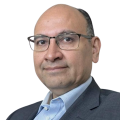
More information available shortly

With WRC-27 now just over 2 years away, we are reaching the mid-point of the current WRC ‘cycle’, and preparation around the world is well underway. The most recent regional preparatory meeting for the Americas (PCCII) was held just a few weeks before this conference. Building on the outcomes from that meeting and also looking more generally at the preparatory work that is taking place, this session will provide an update on the progress that is being seen across the region. By analysing current trends, identifying potential challenges, and highlighting areas where greater regional alignment may be needed, the discussion will lay out the next steps over the coming months for continued preparatory efforts. The session will aim to provide strategic insights and support the development of a coordinated and effective approach to ensure a successful regional outcome at WRC-27.

Carolina Limbatto is an economist specialising in regulatory and competition issues. She has worked for Cullen International since 2014 monitoring, reporting and benchmarking on regulatory issues and policy developments in telecommunications, media and digital economy in the Americas.
Ms Limbatto is lead author of the Telecoms Cross-Country Analysis report and the spectrum service in the Americas. Ms Limbatto also regularly participates in regional relevant forum and engages with main stakeholders providing a neutral and accurate assessment and provides training and briefings on policy and regulatory issues.
Before joining Cullen, Ms Limbatto worked at the Argentinian telecoms regulator for five years, advising on regulatory and economic issues.


More information available shortly




Juan is Access Partnership’s Director of Government Affairs, Space and Connectivity Lead. Juan gains market access for new technologies worldwide, by helping companies to comply with regulations as well as obtain licenses and permits for their products and services.
Before joining Access Partnership, Juan worked for more than 10 years in the Legislature of the City of Buenos Aires and in the Argentine National Senate. He holds two bachelor’s degrees, one in Political Science and another in Law, and an MBA from the University of Cambridge. He works in English and Spanish.


More information available shortly


Luciana Camargos is the GSMA’s Head of Spectrum. She directs the GSMA’s range of advocacy issues on public policy relating to spectrum with national governments and multilateral organisations.
Luciana’s career began with Brazilian regulator Anatel, where she worked as part of the board advisory team. She joined the GSMA in 2012, where she has continued to be active in shaping the future of mobile services at international fora such as the ITU, CITEL and other international organisations.
She has chaired regulatory groups charged with developing communications regulation at the ITU and in regional organisations. She is an active supporter of the role of women in technology and is a former chair of the ITU’s Network of Women.
Luciana earned an MBA in telecommunications from the University of Strathclyde, Scotland, and a degree in electrical engineering from the University of Brasilia.


More information available shortly

Latin American countries are continuing to progress toward next-generation connectivity, with an increasing number now having deployed 5G networks. This session will assess the current state of 5G deployment across the region, highlighting national milestones, early use cases, and spectrum utilisation to date. It will examine the persistent challenges that are slowing broader rollout, including investment shortfalls, infrastructure gaps, device affordability, and look at how these can be overcome. A key focus will be on how greater regional harmonisation and cross-border coordination in band planning, licensing frameworks, and technical standards can help reduce deployment costs, encourage economies of scale, and accelerate the benefits of 5G for consumers and industry alike.





Alejandro Herrera Mojica is the Deputy Secretary of the Regional Technical Commission of Telecommunications (COMTELCA). A Telecommunications Engineer with master’s degrees in Telecommunications Engineering and Business Administration, he brings over 15 years of experience in regulation, network management, and public policy development within the ICT sector.
He has held senior positions at Panama’s National Public Services Authority (ASEP), leading major initiatives on regulatory modernization, spectrum valuation, number portability, and service quality improvement. He actively engages in international forums such as ITU, CITEL, and REGULATEL, fostering digital inclusion and regional cooperation across the Americas.



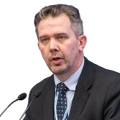
Maximiliano Salvadori Martinhão as its new senior director of government relations for Latin America.
Martinhão served as Secretary of Telecommunications and Secretary of Broadcasting at the Ministry of Communications during various administrations, accumulating over 10 years in these roles. He recently retired from the public sector for good, after a brief stint at EAD, a company that manages the commitments made by telecommunications operators as a result of the 700 MHz band auction.
At Qualcomm, Martinhão is responsible for establishing and maintaining partnerships with governments and regulatory agencies throughout Latin America, as well as representing Qualcomm on issues such as spectrum regulation, intellectual property protection, and the development of connectivity technologies, topics the company considers crucial.


Mr. Ayala is Director of Spectrum Regulations for the Americas, where he promotes favourable spectrum policies that enable investments and mass adoption of mobile broadband services in the region.
In addition, Mr. Ayala chairs the GSA spectrum team for the CITEL Region since 2020, where he coordinates initiatives aiming to release new spectrum for next generation cellular technologies with leading industry stakeholders.
He joined Ericsson in the year 2000, and has worked in the areas of Sales Support, Engineering and Business Development, in Latin America and the USA.
Prior to joining Ericsson, Mr. Ayala held executive positions at leading telecom Operators in Central America, United States, and Spain, where he built a solid experience in areas of sales, operations, and engineering involving mobile, satellite, fixed, IP, and transport technologies.
He holds a master’s degree in electrical engineering from the Georgia Institute of Technology University under a Fulbright Scholarship and is a former fellow from the Hispano-American Telecom Association ASIET.




Stefan Zehle is the MBA, Chairman, and CEO of Coleago Consulting. He has 30 years of experience in telecoms gained as a Director of a Mobile Operating company and as a specialist telecoms management consultant. He has worked in developed markets in Europe, Canada, the US, and also in emerging markets in the Middle East, Africa, and the Far East. As the 2nd person on the ground, he played a pivotal role in launching Nedjma, the 3rd Algerian mobile operator. Stefan has worked on over 70 mobile licence bids and spectrum valuation projects. Co-author of the Economist’s Guide to Business Planning.

Over the next decade, Latin America will face mounting and diverse demands for spectrum from a growing range of technologies, including 5G, future 6G systems, fixed wireless access (FWA), satellite connectivity, Wi-Fi, private networks, broadcasting, PMSE/wireless mics and vertical applications (such as smart grids and industrial IoT). At the same time, governments and stakeholders must also address the region’s broader connectivity needs, supporting digital transformation across industries, cities, and public services. This session will explore how to strike the right balance between competing spectrum needs in the short to medium term (2025–2035), while also enabling timely and effective access to technologies that can meet these evolving demands. Discussions will examine how to manage coexistence, prioritise allocations, and implement flexible licensing and refarming strategies that reflect both current usage trends and future requirements. The role of forward-looking spectrum roadmaps, forecasting tools, and regional coordination will also be highlighted as key enablers of smart, inclusive, and future-proof spectrum planning.

Sebastian Cabello is the Founder and CEO of SmC+. He is an accomplished expert with vast experience driving collective action, public-private partnerships, technology, and public policy advocacy in Latin America.
Sebastian founded SmC+ in 2020, which has established itself as a key provider of policy consulting services to global digital and ICT players as well as multilateral institutions such as the Inter-American Bank (IDB), CAF Development Bank, the UN Economic Commission on Latin America, the Latin American Internet Association (ALAI), and the Fibre Broadband Association.
Between 2010 and end-2018, he was Head of Latin America at the GSMA, the global association of the mobile industry, and led the organisation’s advocacy activities in the region.
He holds a “Licenciado” degree in Economics and a Master in International Affairs from UC San Diego and has been a Fulbright scholar. He is also a research fellow at the Center for Technology and Society (CeTyS) at Universidad de San Andres, Argentina.

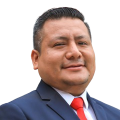
More information available shortly.


Dr. Fabiano Chaves is the Head of Spectrum & Regulatory Affairs, Americas for Shure. He is responsible for advocating for continued access of wireless audio systems to enough spectrum in the TV-UHF range and additional spectrum, which is essential to support productions in a wide range of sectors, including news reporting, theater, music, sports, worship, civic events, and education. He is also involved in regulatory and standardization work on emerging technologies for audio applications.
Prior to joining Shure, Dr. Chaves spent more than 10 years with Nokia, most recently as Head of Spectrum Standardization for North America, where he led the company’s efforts on spectrum matters in the region. He actively contributed to international and regional bodies such as ITU, CITEL and CEPT, supported initiatives with national regulators, and helped drive alignment for next-generation connectivity in industry organizations such as ATIS Next G Alliance and GSA.
Dr. Chaves has over 20 years of experience in telecommunications, with activities spanning from research on wireless systems and networks to spectrum research, strategy, regulation and standardization. He is co-author of 40+ papers in top-tier journals and conferences and 15+ patents. He received his Ph.D. degree in telecommunications from the Ecole Normale Supérieure de Cachan (ENS-Cachan, France) and the University of Campinas (Unicamp, Brazil), and his Master’s degree in teleinformatics engineering from the Federal University of Ceará (UFC, Brazil).

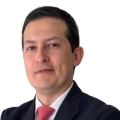
José Arias is an advocate, strategist, and advisor to the Nokia Leadership Team in public policy, technology regulation, connectivity, and digitalization to enable respective portfolio and business strategies.
José previously was Head of Government Affairs for LATAM North & the Caribbean in Nokia, former General Director of Spectrum Planning, and Director of Wireless Technologies at the Mexican regulator, where he held several leadership roles in international organizations, including Chair of the Terrestrial Services Committee at ITU, and worked in Alcatel-Lucent in the fields of business development, corporate strategy, pre-sales, and wireless network design.
José has a Master’s Degree in Business Administration, a Master’s Degree in Regulation and Economic Competition, and an Engineering in Communications and Electronics.


Juan Pablo Rocha is a Wireless Regulatory Lead Engineer at Cisco Systems. He is responsible for promoting a healthy ecosystem for Cisco’s wireless products and services, supporting the global harmonization of spectrum policies, with a particular focus on Latin America.
Juan Pablo has over 18 years of experience in the telecommunications and ICT industry, in both the public and private sectors, contributing to the provision of various terrestrial telecommunications services, primarily in Mexico, but also throughout the Americas.
Before joining Cisco, he was Director of Spectrum Allocations at the Mexican regulatory entity for over 10 years, leading a team that addressed national and international issues related to the use of different frequency bands of the radio spectrum. He has also participated in and coordinated activities at international and regional forums related to radiocommunications (ITU, CITEL, COMTELCA), holding various positions such as rapporteur, coordinator, and vice-chair. Previously, he was responsible for various activities, including the monitoring, operation, management, and support of fixed and mobile telecommunications networks for mobile operators and wireless technology providers.
Juan Pablo is a Communications and Electronics Engineer with a master’s degree in Telecommunications Regulation and Economic Competition, in addition to numerous diplomas and technical, legal and professional development courses.


More information available shortly.

Two years on from WRC-23, the situation in the 6GHz band across the Americas is not becoming any clearer. Much of the region has decided to open the full 1,200 MHz of the band (5.9 to 7.1 GHz) to unlicensed use, generally with an emphasis on low-power applications. This is not universal, however, some countries are still considering moving forward with a licensed regime in the upper part of the band, and notably, in early 2025, Brazil reversed their initial decision and have identified the 6425–7125 MHz band for IMT. Against this shifting backdrop, this session will look at the positions which are emerging and changing and the factors that are impacting this. Given recent developments, it will look at whether a fragmented approach across the region is now inevitable and at the impact that it may have. And finally, it will look forward to what the likely long-term scenarios are and at whether the region is on the path to ensuring that the value of this high-value spectrum is maximised.

Catalina follows telecoms, media and digital economy in Colombia and Chile. She was head of regulation at the Colombian telecommunications regulator and since 2012 has been an independent consultant focused on telecommunications regulation and public policy.


Luis Ottati is a senior telecommunications executive with over 25 years of experience in regulatory leadership, spectrum
management, and mobile technology strategy across Latin America. As Chief of Engineering at ENACOM Argentina, he leads
national efforts in radio spectrum planning, ICT services, and equipment homologation.
He has held key roles at Microsoft, Nokia, and Telecom Personal, driving regional technology roadmaps, product launches, and
mobile service integration. His contributions include strategic national resolutions on spectrum use, including initiatives for rural
connectivity, unlicensed spectrum, spectrum for private networks, strategic band allocations for 5G deployment, and he has
represented Argentina in high-level forums with the FCC, ITU, and the European Union.
Luis is an Electronics Engineer from ITBA (Buenos Aires Institute of Technology), fluent in English, and a committed advocate
for innovation, digital inclusion, and national sovereignty over strategic resources.


More information available shortly


Lucas is the Head of Latin America for the GSMA, leading a highly experienced cross-functional team to advance the impact, growth, and sustainability of digital economies by collaboration between the mobile industry, policymakers, technology ecosystem and international organizations.
He is a telecommunications executive with over 15 years of commercial, operational, regulatory and external affairs experience working for multinational companies in the digital ecosystem.
He leads the advocacy initiatives, contributing with new ideas and analysis to the regional policy dialogue at a time when emerging digital technologies and widespread broadband connectivity are reshaping society and the economy. His areas of responsibility include securing critical spectrum resources for mobile, promoting best practices in matters such as regulation, taxation, security and privacy, as well as fostering digital empowerment for citizens.
Lucas holds a Master in Business Administration (MBA) and has a degree in Telecommunications Engineering.


Celedonio von Wuthenau is Head of Government Relations – Latin America of Nokia, based in Buenos Aires (Argentina). Nokia is a world leader in B2B technology innovation, pioneering networks that sense, think and act.
Celedonio is involved in the development of the relation with government representatives and public officials and works in collaboration with Nokia´s LAT leaders to advance the company’s information and communications technology policy agenda throughout the region.
Before he took this position, Celedonio was CALA Public Affairs Director – Americas Region at Alcatel-Lucent (2011-216), Regional Director for Latin America and the Caribbean with the CDMA Development Group (CDG) (2002-2011), Public Affairs Director at Lucent Technologies for South America excluding Brazil (2000-2002) and International and Institutional Manager of the National Commission of Communications (CNC) plus other positions, Argentina’s telecom regulator authority (1996-2000). He has a rich background in external relations and public affairs in Latin America.
Celedonio, born in Buenos Aires, married and with three children, is Bachelor in Public Administration and Political Sciences of the University of Cuyo (Mendoza, Argentina) and Ph.D in Political Sciences of the University of Mainz (Germany).
As a B2B technology innovation leader, we are pioneering networks that sense, think and act by leveraging our work across mobile, fixed and cloud networks. In addition, we create value with intellectual property and long-term research, led by the award-winning Nokia Bell Labs.


Josh Baggett leads the Global Wireless Policy team for HPE Aruba Networking, where he advocates for its wireless initiatives among regulators, policymakers, and industry standards organizations.

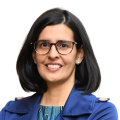
Martha Suarez was born in Bucaramanga, Colombia. She received her degree as Electronics Engineer from the Universidad Industrial de Santander in 2004. During her undergraduate studies, she participated in an exchange program with the Ecole Superieure Chimie Physique Electronique de Lyon, France, in 2001. She received her master’s degree in high frequency communication systems from the University of Marne-la-Vallee, France, in 2006 and her Ph.D. degree from the University Paris-Est in 2009. She joined the department of Telecommunications and Signal Processing at the École Supérieure d’Ingénieurs en Électronique et Électrotechnique de Paris ESIEE and the Esycom Research Center, where she worked on wireless transmitter architectures. In 2011, she was awarded with a Marie Curie Fellowship and worked at the Instytut Technologii Elektronowej ITE in Poland for the Partnership for Cognitive Radio (Par4CR) European Project. Her research interests were in the areas of wireless system architectures and the design of high performance Radio Frequency (RF) transceivers.
In 2013, she joined the National Spectrum Agency in Colombia, ANE, where she worked as Senior Adviser to the General Director and supported the international activities of the Agency. Afterwards, in December 2015, she became the General Director of ANE and continued promoting the efficient use of the Spectrum and the mobile broadband connectivity in Colombia.
Since the 1st of May 2019, Martha Suarez has been the President of the Dynamic Spectrum Alliance (DSA), a global organisation advocating for laws and regulations that will lead to more efficient and effective spectrum utilisation, which is essential to addressing key worldwide social and economic challenges.

As the global conversation around 6G accelerates, Latin America has an opportunity to play an active role in shaping its development from the ground up. While 5G deployment remains the immediate priority across the region, early policy coordination, research investment, and spectrum strategy will be critical to ensure 6G readiness and relevance in the years ahead. Unlike previous generations, 6G is expected to move beyond traditional performance metrics – enabling distributed intelligence, integrated sensing, sub-THz communications, and AI-native networks. These advancements will demand not only large contiguous blocks of spectrum but also bold rethinking of access models, infrastructure sharing, and cross-sector collaboration. This session will look ahead to how Latin American countries are already starting to proactively prepare for this technological evolution and at the work that lies ahead. It will examine which spectrum bands may be most viable, how policy and licensing frameworks might need to evolve, and what the region can do now to ensure its 6G strategies are globally aligned while addressing local economic and social priorities.

Carolina Limbatto is an economist specialising in regulatory and competition issues. She has worked for Cullen International since 2014 monitoring, reporting and benchmarking on regulatory issues and policy developments in telecommunications, media and digital economy in the Americas.
Ms Limbatto is lead author of the Telecoms Cross-Country Analysis report and the spectrum service in the Americas. Ms Limbatto also regularly participates in regional relevant forum and engages with main stakeholders providing a neutral and accurate assessment and provides training and briefings on policy and regulatory issues.
Before joining Cullen, Ms Limbatto worked at the Argentinian telecoms regulator for five years, advising on regulatory and economic issues.


More information available shortly


More information available shortly


Cindy Cook is Vice President & Global Head of Spectrum and Technology Regulations at Ericsson. She coordinates and drives Ericsson’s spectrum and technology regulatory efforts globally, across the Ericsson Group and towards regulatory bodies such as the ITU. She leads the development of Ericsson’s global spectrum strategies.
Prior to joining Ericsson, Cindy was the Director, International Spectrum & Standards with the Canadian Government where she led Canadian preparations towards multiple ITU-R Radiocommunication Assemblies & World Radiocommunication Conferences. Cindy has been actively participating in the work of the ITU-R for over 20 years where she has chaired progressively higher-level international meetings including the ITU-R Conference Preparatory Meeting for WRC-23, the first woman to do so. She is an advocate for gender equality, promoting the role of women in the spectrum and technology fields.
Cindy has over 35 years of experience in telecommunications systems engineering, regulation and policy development, having also worked at Telesat Canada, Bell Canada and Nortel. She graduated sum cum laude from the University of Ottawa with a Bachelor of Advanced Science in Electrical Engineering.

(hosted by Chicas TIC)
Despite significant progress in expanding connectivity across Latin America, stark digital divides remain between urban centres and rural or remote communities. Closing these gaps is not only a matter of infrastructure – it also requires spectrum policy that enables flexible, inclusive, and innovative models of access. From shared spectrum frameworks and local licensing to community driven networks, satellite services, and fixed wireless access, a diverse mix of approaches will be needed to unlock meaningful connectivity in underserved areas. This session will explore how spectrum strategies can be designed to maximise social and economic value in rural regions, support local development, and ensure that no community is left behind in the digital transformation.

Bruno Soria has over 30 years of experience in the telecommunications, internet, ICT, and media industries. He has played an active role as an economic and competition expert in the debates on the regulation of telecommunications and internet in Europe and Latin America since 1992. He has also testified as an expert witness in competition, litigation, and arbitration cases in several jurisdictions. His current work focuses on dynamic competition in digital industries, business valuation, the design of digital policies and regulations, and the assessment of their economic and social impact.

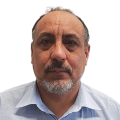
More information available shortly


Electronic Engineer from Pontificia Universidad Javeriana, with a Master’s in Business Administration and a specialization in Marketing Management from Universidad del Rosario. He has held senior positions at the Communications Regulation Commission of Colombia (CRC), including Commissioner (2020) and Executive Director (2023), and currently serves as Deputy Director of Spectrum Management at the National Spectrum Agency (ANE). He has represented Colombia before ITU, CITEL, and OECD, and lectures in postgraduate programs on Telecommunications Regulation and Emerging Technologies.


Martha Suarez was born in Bucaramanga, Colombia. She received her degree as Electronics Engineer from the Universidad Industrial de Santander in 2004. During her undergraduate studies, she participated in an exchange program with the Ecole Superieure Chimie Physique Electronique de Lyon, France, in 2001. She received her master’s degree in high frequency communication systems from the University of Marne-la-Vallee, France, in 2006 and her Ph.D. degree from the University Paris-Est in 2009. She joined the department of Telecommunications and Signal Processing at the École Supérieure d’Ingénieurs en Électronique et Électrotechnique de Paris ESIEE and the Esycom Research Center, where she worked on wireless transmitter architectures. In 2011, she was awarded with a Marie Curie Fellowship and worked at the Instytut Technologii Elektronowej ITE in Poland for the Partnership for Cognitive Radio (Par4CR) European Project. Her research interests were in the areas of wireless system architectures and the design of high performance Radio Frequency (RF) transceivers.
In 2013, she joined the National Spectrum Agency in Colombia, ANE, where she worked as Senior Adviser to the General Director and supported the international activities of the Agency. Afterwards, in December 2015, she became the General Director of ANE and continued promoting the efficient use of the Spectrum and the mobile broadband connectivity in Colombia.
Since the 1st of May 2019, Martha Suarez has been the President of the Dynamic Spectrum Alliance (DSA), a global organisation advocating for laws and regulations that will lead to more efficient and effective spectrum utilisation, which is essential to addressing key worldwide social and economic challenges.


Gustavo brings over three decades of extensive experience in the ICT sector within the Argentine Government, thus providing invaluable expertise to Welchman Keen clients across Latin America and the Caribbean. Prior to joining Welchman Keen, he held several pivotal roles that have guided ICT policy and regulation both in Argentina and internationally. For a decade, he served as the Head of Satellite Affairs at CNC-Argentina, demonstrating exceptional leadership and technical acumen.
Through his appointments as ITU and CITEL Focal Point for the Argentine Administration (2020 – 2024), he represented Argentina’s interests on the global stage, serving as a Counsellor and Alternate Representative in ITU Council Sessions, as well as Head of Delegation and Coordinator for Argentina in high-level meetings before ITU, CITEL, and ITSO. Gustavo was also elected Chairman of the COMCITEL Working Group for ITU Council Meetings (2020-2024), and member of the ITSO Legal Experts Panel on two occasions (2018 and 2024), further cementing his reputation as a respected authority in the field.
Gustavo holds a Degree in Civil Law from the University of Buenos Aires, Argentina, where he also pursued postgraduate specialisation in Telecommunications Law.

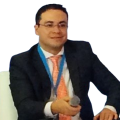

As Latin American countries expand access to next-generation mobile networks and spectrum pricing, the design of award processes remains a pivotal factor when it comes to the level of investment and speed of network rollout that is seen. This session will look at recent awards across the region and look at how pricing and award methodology across the region are evolving. With case studies from key Latin American markets and interventions from the mobile community, it will examine how different pricing strategies can either encourage network deployment or create barriers to participation. Where does the balance lie between fiscal returns and broadband expansion, and what impact can a spectrum pricing strategy have in driving sustainable digital growth?

More information available shortly


Bruno Soria has over 30 years of experience in the telecommunications, internet, ICT, and media industries. He has played an active role as an economic and competition expert in the debates on the regulation of telecommunications and internet in Europe and Latin America since 1992. He has also testified as an expert witness in competition, litigation, and arbitration cases in several jurisdictions. His current work focuses on dynamic competition in digital industries, business valuation, the design of digital policies and regulations, and the assessment of their economic and social impact.


More information available shortly


More information available shortly.

Direct-to-Device (D2D) satellite connectivity is rapidly emerging as one of the most transformative innovations in the communications landscape. By enabling standard mobile devices to connect directly to satellites, D2D promises to extend coverage to underserved areas, support emergency communications, and create new service models that integrate seamlessly with terrestrial networks. At the same time, this shift raises complex spectrum management and regulatory challenges. Issues such as spectrum licencing models and whether to leverage mobile (IMT) or satellite (MSS) spectrum frequency bands to deliver connectivity, as well as interference protection, and the suitability of existing licensing regimes are all coming to the fore. This session will examine how regulatory frameworks across Latin America and beyond can evolve to support the rollout of D2D services while balancing the needs of incumbents and new entrants. It will explore the technical, policy, and market implications of D2D and consider what role international coordination will play in shaping its future.





Luciana Camargos is the GSMA’s Head of Spectrum. She directs the GSMA’s range of advocacy issues on public policy relating to spectrum with national governments and multilateral organisations.
Luciana’s career began with Brazilian regulator Anatel, where she worked as part of the board advisory team. She joined the GSMA in 2012, where she has continued to be active in shaping the future of mobile services at international fora such as the ITU, CITEL and other international organisations.
She has chaired regulatory groups charged with developing communications regulation at the ITU and in regional organisations. She is an active supporter of the role of women in technology and is a former chair of the ITU’s Network of Women.
Luciana earned an MBA in telecommunications from the University of Strathclyde, Scotland, and a degree in electrical engineering from the University of Brasilia.


More information available shortly.

More information available shortly
The deployment of large-scale NGSO mega-constellations and the anticipated evolution towards non-terrestrial 6G technologies are unlocking a wide range of exciting new possibilities and opportunities but also bringing significant spectrum management and regulatory challenges. Managing the coexistence of this growing number of diverse NGSO constellations with existing GSOs and other incumbents presents an increasingly complex challenge and calls into question whether existing licensing frameworks across the region remain fit for purpose. This session will examine current regulatory and licensing frameworks across Latin America and discuss the extent to which they are able to cope with the dynamic satellite movements, varying power levels, and congested orbital and spectrum environments that are seen today. It will look at the work that is being done at a national, regional and global level to develop policy and technological solutions that ensure fair access, long-term sustainability, and coexistence in an increasingly crowded sky.

Journalist and analyst specialising in Information and Communications Technologies with over 10 years of experience. She is responsible for the strategic vision of the news agency’s content. She covers public policy and ICT regulation, the Latin American telco business, 5G, satellites, cloud, spectrum, IoT, Open RAN, Edge, and technology verticals.

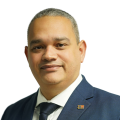
Alberto Delgado, is the Director of Radioelectric Spectrum, at INDOTEL, Dominican Republic. With more than 20 years of experience in Spectrum monitoring and Management, graduated in electronics and telecommunications engineering from the Technological Institute of Santo Domingo with a master’s degree in Top Management from the same house of studies.
• Strong background in Wireless Technologies (GSM, LTE, WIMAX and RF).
• Proven skills in Frequency Spectrum Monitoring, Management and Planning.
• Professional communication skills include fluency in English and Spanish.


Electronic Engineer from Pontificia Universidad Javeriana, with a Master’s in Business Administration and a specialization in Marketing Management from Universidad del Rosario. He has held senior positions at the Communications Regulation Commission of Colombia (CRC), including Commissioner (2020) and Executive Director (2023), and currently serves as Deputy Director of Spectrum Management at the National Spectrum Agency (ANE). He has represented Colombia before ITU, CITEL, and OECD, and lectures in postgraduate programs on Telecommunications Regulation and Emerging Technologies.


More information available shortly


Engineer in Telecommunications with a Master Degree in Regulation and Economic Competition of Telecommunications, mainly focus on national and international satellite regulatory issues with National Regulatory Authorities and operators.


Mariano Greco is a distinguished specialist in information technology and data science with extensive experience in both the public and private sectors. Since February 2024, he has served as President and Chief Executive Officer (CEO) of ARSAT, leading technological transformation projects with a focus on cybersecurity, strategic IT development, and the implementation of a hybrid cloud in collaboration with AWS. His strong track record includes promoting open data policies, digitalization, and technological modernization at the state level. He is also a lecturer and author on topics related to digital government.




More information available shortly

With WRC-27 now just over 2 years away, we are reaching the mid-point of the current WRC ‘cycle’, and preparation around the world is well underway. The most recent regional preparatory meeting for the Americas (PCCII) was held just a few weeks before this conference. Building on the outcomes from that meeting and also looking more generally at the preparatory work that is taking place, this session will provide an update on the progress that is being seen across the region. By analysing current trends, identifying potential challenges, and highlighting areas where greater regional alignment may be needed, the discussion will lay out the next steps over the coming months for continued preparatory efforts. The session will aim to provide strategic insights and support the development of a coordinated and effective approach to ensure a successful regional outcome at WRC-27.

Carolina Limbatto is an economist specialising in regulatory and competition issues. She has worked for Cullen International since 2014 monitoring, reporting and benchmarking on regulatory issues and policy developments in telecommunications, media and digital economy in the Americas.
Ms Limbatto is lead author of the Telecoms Cross-Country Analysis report and the spectrum service in the Americas. Ms Limbatto also regularly participates in regional relevant forum and engages with main stakeholders providing a neutral and accurate assessment and provides training and briefings on policy and regulatory issues.
Before joining Cullen, Ms Limbatto worked at the Argentinian telecoms regulator for five years, advising on regulatory and economic issues.


More information available shortly




Juan is Access Partnership’s Director of Government Affairs, Space and Connectivity Lead. Juan gains market access for new technologies worldwide, by helping companies to comply with regulations as well as obtain licenses and permits for their products and services.
Before joining Access Partnership, Juan worked for more than 10 years in the Legislature of the City of Buenos Aires and in the Argentine National Senate. He holds two bachelor’s degrees, one in Political Science and another in Law, and an MBA from the University of Cambridge. He works in English and Spanish.


More information available shortly


Luciana Camargos is the GSMA’s Head of Spectrum. She directs the GSMA’s range of advocacy issues on public policy relating to spectrum with national governments and multilateral organisations.
Luciana’s career began with Brazilian regulator Anatel, where she worked as part of the board advisory team. She joined the GSMA in 2012, where she has continued to be active in shaping the future of mobile services at international fora such as the ITU, CITEL and other international organisations.
She has chaired regulatory groups charged with developing communications regulation at the ITU and in regional organisations. She is an active supporter of the role of women in technology and is a former chair of the ITU’s Network of Women.
Luciana earned an MBA in telecommunications from the University of Strathclyde, Scotland, and a degree in electrical engineering from the University of Brasilia.


More information available shortly

Latin American countries are continuing to progress toward next-generation connectivity, with an increasing number now having deployed 5G networks. This session will assess the current state of 5G deployment across the region, highlighting national milestones, early use cases, and spectrum utilisation to date. It will examine the persistent challenges that are slowing broader rollout, including investment shortfalls, infrastructure gaps, device affordability, and look at how these can be overcome. A key focus will be on how greater regional harmonisation and cross-border coordination in band planning, licensing frameworks, and technical standards can help reduce deployment costs, encourage economies of scale, and accelerate the benefits of 5G for consumers and industry alike.





Alejandro Herrera Mojica is the Deputy Secretary of the Regional Technical Commission of Telecommunications (COMTELCA). A Telecommunications Engineer with master’s degrees in Telecommunications Engineering and Business Administration, he brings over 15 years of experience in regulation, network management, and public policy development within the ICT sector.
He has held senior positions at Panama’s National Public Services Authority (ASEP), leading major initiatives on regulatory modernization, spectrum valuation, number portability, and service quality improvement. He actively engages in international forums such as ITU, CITEL, and REGULATEL, fostering digital inclusion and regional cooperation across the Americas.




Maximiliano Salvadori Martinhão as its new senior director of government relations for Latin America.
Martinhão served as Secretary of Telecommunications and Secretary of Broadcasting at the Ministry of Communications during various administrations, accumulating over 10 years in these roles. He recently retired from the public sector for good, after a brief stint at EAD, a company that manages the commitments made by telecommunications operators as a result of the 700 MHz band auction.
At Qualcomm, Martinhão is responsible for establishing and maintaining partnerships with governments and regulatory agencies throughout Latin America, as well as representing Qualcomm on issues such as spectrum regulation, intellectual property protection, and the development of connectivity technologies, topics the company considers crucial.


Mr. Ayala is Director of Spectrum Regulations for the Americas, where he promotes favourable spectrum policies that enable investments and mass adoption of mobile broadband services in the region.
In addition, Mr. Ayala chairs the GSA spectrum team for the CITEL Region since 2020, where he coordinates initiatives aiming to release new spectrum for next generation cellular technologies with leading industry stakeholders.
He joined Ericsson in the year 2000, and has worked in the areas of Sales Support, Engineering and Business Development, in Latin America and the USA.
Prior to joining Ericsson, Mr. Ayala held executive positions at leading telecom Operators in Central America, United States, and Spain, where he built a solid experience in areas of sales, operations, and engineering involving mobile, satellite, fixed, IP, and transport technologies.
He holds a master’s degree in electrical engineering from the Georgia Institute of Technology University under a Fulbright Scholarship and is a former fellow from the Hispano-American Telecom Association ASIET.




Stefan Zehle is the MBA, Chairman, and CEO of Coleago Consulting. He has 30 years of experience in telecoms gained as a Director of a Mobile Operating company and as a specialist telecoms management consultant. He has worked in developed markets in Europe, Canada, the US, and also in emerging markets in the Middle East, Africa, and the Far East. As the 2nd person on the ground, he played a pivotal role in launching Nedjma, the 3rd Algerian mobile operator. Stefan has worked on over 70 mobile licence bids and spectrum valuation projects. Co-author of the Economist’s Guide to Business Planning.

Over the next decade, Latin America will face mounting and diverse demands for spectrum from a growing range of technologies, including 5G, future 6G systems, fixed wireless access (FWA), satellite connectivity, Wi-Fi, private networks, broadcasting, PMSE/wireless mics and vertical applications (such as smart grids and industrial IoT). At the same time, governments and stakeholders must also address the region’s broader connectivity needs, supporting digital transformation across industries, cities, and public services. This session will explore how to strike the right balance between competing spectrum needs in the short to medium term (2025–2035), while also enabling timely and effective access to technologies that can meet these evolving demands. Discussions will examine how to manage coexistence, prioritise allocations, and implement flexible licensing and refarming strategies that reflect both current usage trends and future requirements. The role of forward-looking spectrum roadmaps, forecasting tools, and regional coordination will also be highlighted as key enablers of smart, inclusive, and future-proof spectrum planning.

Sebastian Cabello is the Founder and CEO of SmC+. He is an accomplished expert with vast experience driving collective action, public-private partnerships, technology, and public policy advocacy in Latin America.
Sebastian founded SmC+ in 2020, which has established itself as a key provider of policy consulting services to global digital and ICT players as well as multilateral institutions such as the Inter-American Bank (IDB), CAF Development Bank, the UN Economic Commission on Latin America, the Latin American Internet Association (ALAI), and the Fibre Broadband Association.
Between 2010 and end-2018, he was Head of Latin America at the GSMA, the global association of the mobile industry, and led the organisation’s advocacy activities in the region.
He holds a “Licenciado” degree in Economics and a Master in International Affairs from UC San Diego and has been a Fulbright scholar. He is also a research fellow at the Center for Technology and Society (CeTyS) at Universidad de San Andres, Argentina.


More information available shortly.


Dr. Fabiano Chaves is the Head of Spectrum & Regulatory Affairs, Americas for Shure. He is responsible for advocating for continued access of wireless audio systems to enough spectrum in the TV-UHF range and additional spectrum, which is essential to support productions in a wide range of sectors, including news reporting, theater, music, sports, worship, civic events, and education. He is also involved in regulatory and standardization work on emerging technologies for audio applications.
Prior to joining Shure, Dr. Chaves spent more than 10 years with Nokia, most recently as Head of Spectrum Standardization for North America, where he led the company’s efforts on spectrum matters in the region. He actively contributed to international and regional bodies such as ITU, CITEL and CEPT, supported initiatives with national regulators, and helped drive alignment for next-generation connectivity in industry organizations such as ATIS Next G Alliance and GSA.
Dr. Chaves has over 20 years of experience in telecommunications, with activities spanning from research on wireless systems and networks to spectrum research, strategy, regulation and standardization. He is co-author of 40+ papers in top-tier journals and conferences and 15+ patents. He received his Ph.D. degree in telecommunications from the Ecole Normale Supérieure de Cachan (ENS-Cachan, France) and the University of Campinas (Unicamp, Brazil), and his Master’s degree in teleinformatics engineering from the Federal University of Ceará (UFC, Brazil).


José Arias is an advocate, strategist, and advisor to the Nokia Leadership Team in public policy, technology regulation, connectivity, and digitalization to enable respective portfolio and business strategies.
José previously was Head of Government Affairs for LATAM North & the Caribbean in Nokia, former General Director of Spectrum Planning, and Director of Wireless Technologies at the Mexican regulator, where he held several leadership roles in international organizations, including Chair of the Terrestrial Services Committee at ITU, and worked in Alcatel-Lucent in the fields of business development, corporate strategy, pre-sales, and wireless network design.
José has a Master’s Degree in Business Administration, a Master’s Degree in Regulation and Economic Competition, and an Engineering in Communications and Electronics.


Juan Pablo Rocha is a Wireless Regulatory Lead Engineer at Cisco Systems. He is responsible for promoting a healthy ecosystem for Cisco’s wireless products and services, supporting the global harmonization of spectrum policies, with a particular focus on Latin America.
Juan Pablo has over 18 years of experience in the telecommunications and ICT industry, in both the public and private sectors, contributing to the provision of various terrestrial telecommunications services, primarily in Mexico, but also throughout the Americas.
Before joining Cisco, he was Director of Spectrum Allocations at the Mexican regulatory entity for over 10 years, leading a team that addressed national and international issues related to the use of different frequency bands of the radio spectrum. He has also participated in and coordinated activities at international and regional forums related to radiocommunications (ITU, CITEL, COMTELCA), holding various positions such as rapporteur, coordinator, and vice-chair. Previously, he was responsible for various activities, including the monitoring, operation, management, and support of fixed and mobile telecommunications networks for mobile operators and wireless technology providers.
Juan Pablo is a Communications and Electronics Engineer with a master’s degree in Telecommunications Regulation and Economic Competition, in addition to numerous diplomas and technical, legal and professional development courses.


More information available shortly.

Two years on from WRC-23, the situation in the 6GHz band across the Americas is not becoming any clearer. Much of the region has decided to open the full 1,200 MHz of the band (5.9 to 7.1 GHz) to unlicensed use, generally with an emphasis on low-power applications. This is not universal, however, some countries are still considering moving forward with a licensed regime in the upper part of the band, and notably, in early 2025, Brazil reversed their initial decision and have identified the 6425–7125 MHz band for IMT. Against this shifting backdrop, this session will look at the positions which are emerging and changing and the factors that are impacting this. Given recent developments, it will look at whether a fragmented approach across the region is now inevitable and at the impact that it may have. And finally, it will look forward to what the likely long-term scenarios are and at whether the region is on the path to ensuring that the value of this high-value spectrum is maximised.

Catalina follows telecoms, media and digital economy in Colombia and Chile. She was head of regulation at the Colombian telecommunications regulator and since 2012 has been an independent consultant focused on telecommunications regulation and public policy.


Luis Ottati is a senior telecommunications executive with over 25 years of experience in regulatory leadership, spectrum
management, and mobile technology strategy across Latin America. As Chief of Engineering at ENACOM Argentina, he leads
national efforts in radio spectrum planning, ICT services, and equipment homologation.
He has held key roles at Microsoft, Nokia, and Telecom Personal, driving regional technology roadmaps, product launches, and
mobile service integration. His contributions include strategic national resolutions on spectrum use, including initiatives for rural
connectivity, unlicensed spectrum, spectrum for private networks, strategic band allocations for 5G deployment, and he has
represented Argentina in high-level forums with the FCC, ITU, and the European Union.
Luis is an Electronics Engineer from ITBA (Buenos Aires Institute of Technology), fluent in English, and a committed advocate
for innovation, digital inclusion, and national sovereignty over strategic resources.


More information available shortly


Lucas is the Head of Latin America for the GSMA, leading a highly experienced cross-functional team to advance the impact, growth, and sustainability of digital economies by collaboration between the mobile industry, policymakers, technology ecosystem and international organizations.
He is a telecommunications executive with over 15 years of commercial, operational, regulatory and external affairs experience working for multinational companies in the digital ecosystem.
He leads the advocacy initiatives, contributing with new ideas and analysis to the regional policy dialogue at a time when emerging digital technologies and widespread broadband connectivity are reshaping society and the economy. His areas of responsibility include securing critical spectrum resources for mobile, promoting best practices in matters such as regulation, taxation, security and privacy, as well as fostering digital empowerment for citizens.
Lucas holds a Master in Business Administration (MBA) and has a degree in Telecommunications Engineering.


Celedonio von Wuthenau is Head of Government Relations – Latin America of Nokia, based in Buenos Aires (Argentina). Nokia is a world leader in B2B technology innovation, pioneering networks that sense, think and act.
Celedonio is involved in the development of the relation with government representatives and public officials and works in collaboration with Nokia´s LAT leaders to advance the company’s information and communications technology policy agenda throughout the region.
Before he took this position, Celedonio was CALA Public Affairs Director – Americas Region at Alcatel-Lucent (2011-216), Regional Director for Latin America and the Caribbean with the CDMA Development Group (CDG) (2002-2011), Public Affairs Director at Lucent Technologies for South America excluding Brazil (2000-2002) and International and Institutional Manager of the National Commission of Communications (CNC) plus other positions, Argentina’s telecom regulator authority (1996-2000). He has a rich background in external relations and public affairs in Latin America.
Celedonio, born in Buenos Aires, married and with three children, is Bachelor in Public Administration and Political Sciences of the University of Cuyo (Mendoza, Argentina) and Ph.D in Political Sciences of the University of Mainz (Germany).
As a B2B technology innovation leader, we are pioneering networks that sense, think and act by leveraging our work across mobile, fixed and cloud networks. In addition, we create value with intellectual property and long-term research, led by the award-winning Nokia Bell Labs.


Josh Baggett leads the Global Wireless Policy team for HPE Aruba Networking, where he advocates for its wireless initiatives among regulators, policymakers, and industry standards organizations.


Martha Suarez was born in Bucaramanga, Colombia. She received her degree as Electronics Engineer from the Universidad Industrial de Santander in 2004. During her undergraduate studies, she participated in an exchange program with the Ecole Superieure Chimie Physique Electronique de Lyon, France, in 2001. She received her master’s degree in high frequency communication systems from the University of Marne-la-Vallee, France, in 2006 and her Ph.D. degree from the University Paris-Est in 2009. She joined the department of Telecommunications and Signal Processing at the École Supérieure d’Ingénieurs en Électronique et Électrotechnique de Paris ESIEE and the Esycom Research Center, where she worked on wireless transmitter architectures. In 2011, she was awarded with a Marie Curie Fellowship and worked at the Instytut Technologii Elektronowej ITE in Poland for the Partnership for Cognitive Radio (Par4CR) European Project. Her research interests were in the areas of wireless system architectures and the design of high performance Radio Frequency (RF) transceivers.
In 2013, she joined the National Spectrum Agency in Colombia, ANE, where she worked as Senior Adviser to the General Director and supported the international activities of the Agency. Afterwards, in December 2015, she became the General Director of ANE and continued promoting the efficient use of the Spectrum and the mobile broadband connectivity in Colombia.
Since the 1st of May 2019, Martha Suarez has been the President of the Dynamic Spectrum Alliance (DSA), a global organisation advocating for laws and regulations that will lead to more efficient and effective spectrum utilisation, which is essential to addressing key worldwide social and economic challenges.

As the global conversation around 6G accelerates, Latin America has an opportunity to play an active role in shaping its development from the ground up. While 5G deployment remains the immediate priority across the region, early policy coordination, research investment, and spectrum strategy will be critical to ensure 6G readiness and relevance in the years ahead. Unlike previous generations, 6G is expected to move beyond traditional performance metrics – enabling distributed intelligence, integrated sensing, sub-THz communications, and AI-native networks. These advancements will demand not only large contiguous blocks of spectrum but also bold rethinking of access models, infrastructure sharing, and cross-sector collaboration. This session will look ahead to how Latin American countries are already starting to proactively prepare for this technological evolution and at the work that lies ahead. It will examine which spectrum bands may be most viable, how policy and licensing frameworks might need to evolve, and what the region can do now to ensure its 6G strategies are globally aligned while addressing local economic and social priorities.

Carolina Limbatto is an economist specialising in regulatory and competition issues. She has worked for Cullen International since 2014 monitoring, reporting and benchmarking on regulatory issues and policy developments in telecommunications, media and digital economy in the Americas.
Ms Limbatto is lead author of the Telecoms Cross-Country Analysis report and the spectrum service in the Americas. Ms Limbatto also regularly participates in regional relevant forum and engages with main stakeholders providing a neutral and accurate assessment and provides training and briefings on policy and regulatory issues.
Before joining Cullen, Ms Limbatto worked at the Argentinian telecoms regulator for five years, advising on regulatory and economic issues.


More information available shortly


More information available shortly


Cindy Cook is Vice President & Global Head of Spectrum and Technology Regulations at Ericsson. She coordinates and drives Ericsson’s spectrum and technology regulatory efforts globally, across the Ericsson Group and towards regulatory bodies such as the ITU. She leads the development of Ericsson’s global spectrum strategies.
Prior to joining Ericsson, Cindy was the Director, International Spectrum & Standards with the Canadian Government where she led Canadian preparations towards multiple ITU-R Radiocommunication Assemblies & World Radiocommunication Conferences. Cindy has been actively participating in the work of the ITU-R for over 20 years where she has chaired progressively higher-level international meetings including the ITU-R Conference Preparatory Meeting for WRC-23, the first woman to do so. She is an advocate for gender equality, promoting the role of women in the spectrum and technology fields.
Cindy has over 35 years of experience in telecommunications systems engineering, regulation and policy development, having also worked at Telesat Canada, Bell Canada and Nortel. She graduated sum cum laude from the University of Ottawa with a Bachelor of Advanced Science in Electrical Engineering.

(hosted by Chicas TIC)
Despite significant progress in expanding connectivity across Latin America, stark digital divides remain between urban centres and rural or remote communities. Closing these gaps is not only a matter of infrastructure – it also requires spectrum policy that enables flexible, inclusive, and innovative models of access. From shared spectrum frameworks and local licensing to community driven networks, satellite services, and fixed wireless access, a diverse mix of approaches will be needed to unlock meaningful connectivity in underserved areas. This session will explore how spectrum strategies can be designed to maximise social and economic value in rural regions, support local development, and ensure that no community is left behind in the digital transformation.

Bruno Soria has over 30 years of experience in the telecommunications, internet, ICT, and media industries. He has played an active role as an economic and competition expert in the debates on the regulation of telecommunications and internet in Europe and Latin America since 1992. He has also testified as an expert witness in competition, litigation, and arbitration cases in several jurisdictions. His current work focuses on dynamic competition in digital industries, business valuation, the design of digital policies and regulations, and the assessment of their economic and social impact.


More information available shortly


Electronic Engineer from Pontificia Universidad Javeriana, with a Master’s in Business Administration and a specialization in Marketing Management from Universidad del Rosario. He has held senior positions at the Communications Regulation Commission of Colombia (CRC), including Commissioner (2020) and Executive Director (2023), and currently serves as Deputy Director of Spectrum Management at the National Spectrum Agency (ANE). He has represented Colombia before ITU, CITEL, and OECD, and lectures in postgraduate programs on Telecommunications Regulation and Emerging Technologies.


Martha Suarez was born in Bucaramanga, Colombia. She received her degree as Electronics Engineer from the Universidad Industrial de Santander in 2004. During her undergraduate studies, she participated in an exchange program with the Ecole Superieure Chimie Physique Electronique de Lyon, France, in 2001. She received her master’s degree in high frequency communication systems from the University of Marne-la-Vallee, France, in 2006 and her Ph.D. degree from the University Paris-Est in 2009. She joined the department of Telecommunications and Signal Processing at the École Supérieure d’Ingénieurs en Électronique et Électrotechnique de Paris ESIEE and the Esycom Research Center, where she worked on wireless transmitter architectures. In 2011, she was awarded with a Marie Curie Fellowship and worked at the Instytut Technologii Elektronowej ITE in Poland for the Partnership for Cognitive Radio (Par4CR) European Project. Her research interests were in the areas of wireless system architectures and the design of high performance Radio Frequency (RF) transceivers.
In 2013, she joined the National Spectrum Agency in Colombia, ANE, where she worked as Senior Adviser to the General Director and supported the international activities of the Agency. Afterwards, in December 2015, she became the General Director of ANE and continued promoting the efficient use of the Spectrum and the mobile broadband connectivity in Colombia.
Since the 1st of May 2019, Martha Suarez has been the President of the Dynamic Spectrum Alliance (DSA), a global organisation advocating for laws and regulations that will lead to more efficient and effective spectrum utilisation, which is essential to addressing key worldwide social and economic challenges.


Gustavo brings over three decades of extensive experience in the ICT sector within the Argentine Government, thus providing invaluable expertise to Welchman Keen clients across Latin America and the Caribbean. Prior to joining Welchman Keen, he held several pivotal roles that have guided ICT policy and regulation both in Argentina and internationally. For a decade, he served as the Head of Satellite Affairs at CNC-Argentina, demonstrating exceptional leadership and technical acumen.
Through his appointments as ITU and CITEL Focal Point for the Argentine Administration (2020 – 2024), he represented Argentina’s interests on the global stage, serving as a Counsellor and Alternate Representative in ITU Council Sessions, as well as Head of Delegation and Coordinator for Argentina in high-level meetings before ITU, CITEL, and ITSO. Gustavo was also elected Chairman of the COMCITEL Working Group for ITU Council Meetings (2020-2024), and member of the ITSO Legal Experts Panel on two occasions (2018 and 2024), further cementing his reputation as a respected authority in the field.
Gustavo holds a Degree in Civil Law from the University of Buenos Aires, Argentina, where he also pursued postgraduate specialisation in Telecommunications Law.



As Latin American countries expand access to next-generation mobile networks and spectrum pricing, the design of award processes remains a pivotal factor when it comes to the level of investment and speed of network rollout that is seen. This session will look at recent awards across the region and look at how pricing and award methodology across the region are evolving. With case studies from key Latin American markets and interventions from the mobile community, it will examine how different pricing strategies can either encourage network deployment or create barriers to participation. Where does the balance lie between fiscal returns and broadband expansion, and what impact can a spectrum pricing strategy have in driving sustainable digital growth?

More information available shortly


Bruno Soria has over 30 years of experience in the telecommunications, internet, ICT, and media industries. He has played an active role as an economic and competition expert in the debates on the regulation of telecommunications and internet in Europe and Latin America since 1992. He has also testified as an expert witness in competition, litigation, and arbitration cases in several jurisdictions. His current work focuses on dynamic competition in digital industries, business valuation, the design of digital policies and regulations, and the assessment of their economic and social impact.


More information available shortly


More information available shortly.

Direct-to-Device (D2D) satellite connectivity is rapidly emerging as one of the most transformative innovations in the communications landscape. By enabling standard mobile devices to connect directly to satellites, D2D promises to extend coverage to underserved areas, support emergency communications, and create new service models that integrate seamlessly with terrestrial networks. At the same time, this shift raises complex spectrum management and regulatory challenges. Issues such as spectrum licencing models and whether to leverage mobile (IMT) or satellite (MSS) spectrum frequency bands to deliver connectivity, as well as interference protection, and the suitability of existing licensing regimes are all coming to the fore. This session will examine how regulatory frameworks across Latin America and beyond can evolve to support the rollout of D2D services while balancing the needs of incumbents and new entrants. It will explore the technical, policy, and market implications of D2D and consider what role international coordination will play in shaping its future.





Luciana Camargos is the GSMA’s Head of Spectrum. She directs the GSMA’s range of advocacy issues on public policy relating to spectrum with national governments and multilateral organisations.
Luciana’s career began with Brazilian regulator Anatel, where she worked as part of the board advisory team. She joined the GSMA in 2012, where she has continued to be active in shaping the future of mobile services at international fora such as the ITU, CITEL and other international organisations.
She has chaired regulatory groups charged with developing communications regulation at the ITU and in regional organisations. She is an active supporter of the role of women in technology and is a former chair of the ITU’s Network of Women.
Luciana earned an MBA in telecommunications from the University of Strathclyde, Scotland, and a degree in electrical engineering from the University of Brasilia.


More information available shortly.

More information available shortly
The deployment of large-scale NGSO mega-constellations and the anticipated evolution towards non-terrestrial 6G technologies are unlocking a wide range of exciting new possibilities and opportunities but also bringing significant spectrum management and regulatory challenges. Managing the coexistence of this growing number of diverse NGSO constellations with existing GSOs and other incumbents presents an increasingly complex challenge and calls into question whether existing licensing frameworks across the region remain fit for purpose. This session will examine current regulatory and licensing frameworks across Latin America and discuss the extent to which they are able to cope with the dynamic satellite movements, varying power levels, and congested orbital and spectrum environments that are seen today. It will look at the work that is being done at a national, regional and global level to develop policy and technological solutions that ensure fair access, long-term sustainability, and coexistence in an increasingly crowded sky.

Journalist and analyst specialising in Information and Communications Technologies with over 10 years of experience. She is responsible for the strategic vision of the news agency’s content. She covers public policy and ICT regulation, the Latin American telco business, 5G, satellites, cloud, spectrum, IoT, Open RAN, Edge, and technology verticals.


Alberto Delgado, is the Director of Radioelectric Spectrum, at INDOTEL, Dominican Republic. With more than 20 years of experience in Spectrum monitoring and Management, graduated in electronics and telecommunications engineering from the Technological Institute of Santo Domingo with a master’s degree in Top Management from the same house of studies.
• Strong background in Wireless Technologies (GSM, LTE, WIMAX and RF).
• Proven skills in Frequency Spectrum Monitoring, Management and Planning.
• Professional communication skills include fluency in English and Spanish.


Electronic Engineer from Pontificia Universidad Javeriana, with a Master’s in Business Administration and a specialization in Marketing Management from Universidad del Rosario. He has held senior positions at the Communications Regulation Commission of Colombia (CRC), including Commissioner (2020) and Executive Director (2023), and currently serves as Deputy Director of Spectrum Management at the National Spectrum Agency (ANE). He has represented Colombia before ITU, CITEL, and OECD, and lectures in postgraduate programs on Telecommunications Regulation and Emerging Technologies.


More information available shortly


Engineer in Telecommunications with a Master Degree in Regulation and Economic Competition of Telecommunications, mainly focus on national and international satellite regulatory issues with National Regulatory Authorities and operators.


Mariano Greco is a distinguished specialist in information technology and data science with extensive experience in both the public and private sectors. Since February 2024, he has served as President and Chief Executive Officer (CEO) of ARSAT, leading technological transformation projects with a focus on cybersecurity, strategic IT development, and the implementation of a hybrid cloud in collaboration with AWS. His strong track record includes promoting open data policies, digitalization, and technological modernization at the state level. He is also a lecturer and author on topics related to digital government.

Centro Cultural de la Ciencia – C3
Godoy Cruz 2270, C1414 Cdad. Autónoma de Buenos Aires, Argentina
For practical information on travelling to and staying in Buenos Aires, Argentina, including entry requirements, reduced accommodation rates and more, please download the below document, kindly put together by ENACOM.
The conference will take place at the Centro Cultural de la Ciencia – C3 in Buenos Aires, Argentina.
If you would like to enquire about possible fellowship, please contact [email protected].
This conference is held fully in-person with no virtual element available.
You can find more information on the Global Spectrum Series here.
This event took place as part of the Global Spectrum Series, for further information on speaking, sponsorship or visibility opportunities, and to discuss how you can maximize the value of involvement, please contact Dan Craft on [email protected] or on +44 (0) 2920 783 020.
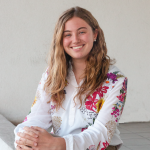
For more information on any aspect of this event, please contact the team:
Tel: +44 (0) 2920 783 072
Sign up to receive updates on our upcoming policy events. We will only send you emails about the conferences and topics that interest you, and you can unsubscribe at any time.